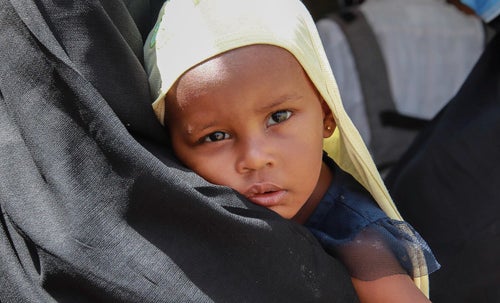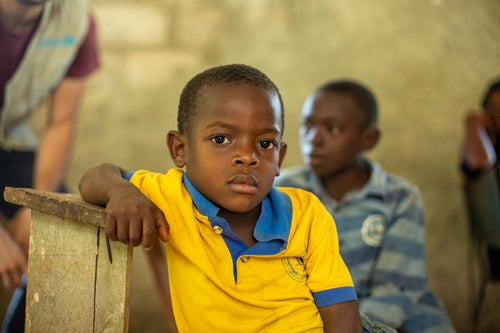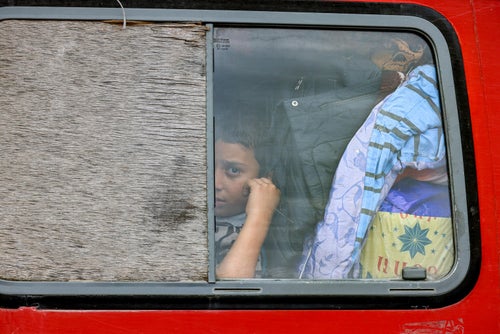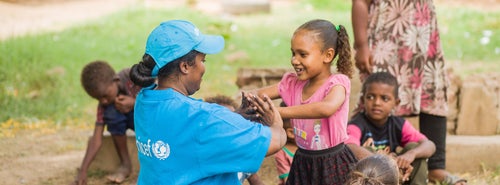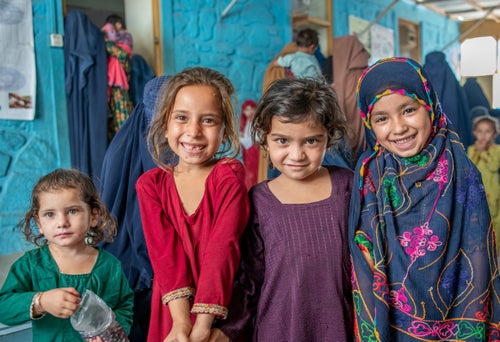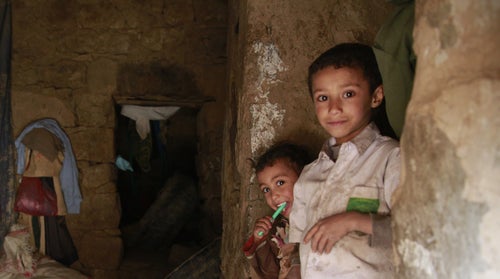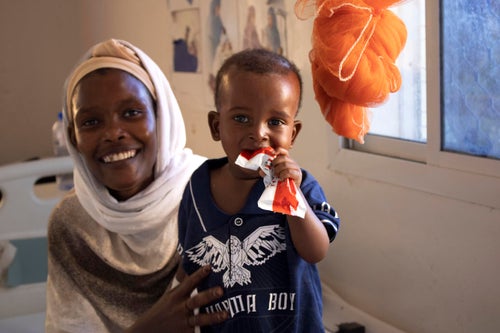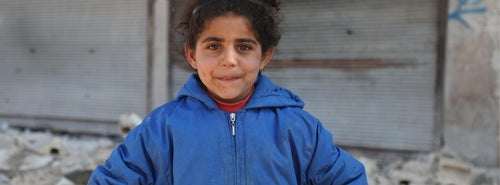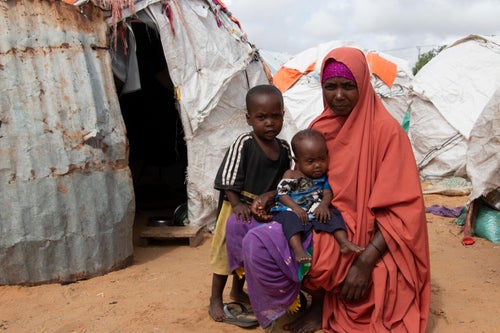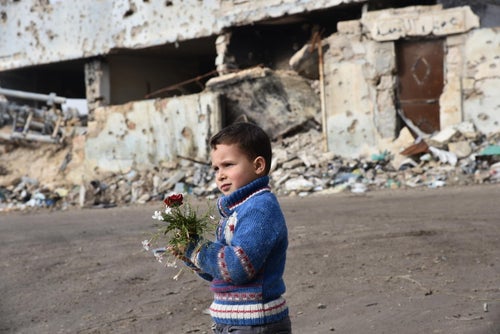From conflicts to natural disasters and disease outbreaks – in 2024, UNICEF responded to 448 emergencies in 104 countries – but only a fraction of these emergencies made the news.
The world is experiencing an unprecedented number of emergencies – ongoing conflicts, mass displacements, disease outbreaks, and devastating droughts, floods, earthquakes and cyclones. Yet many of these emergencies rarely make international headlines, leaving them underfunded, as research shows a strong link between media coverage and funding for emergency response.
Vulnerable communities, especially children, who are enduring these silent emergencies often do not have their basic needs met. They can lack access to healthcare, lifesaving vaccines and nutrition, clean water, education and child protection services.
Bringing these reported emergencies into the spotlight helps children and their communities get the support they need as the crisis unfolds, and the resources, skillset and resilience to recover and build back better.
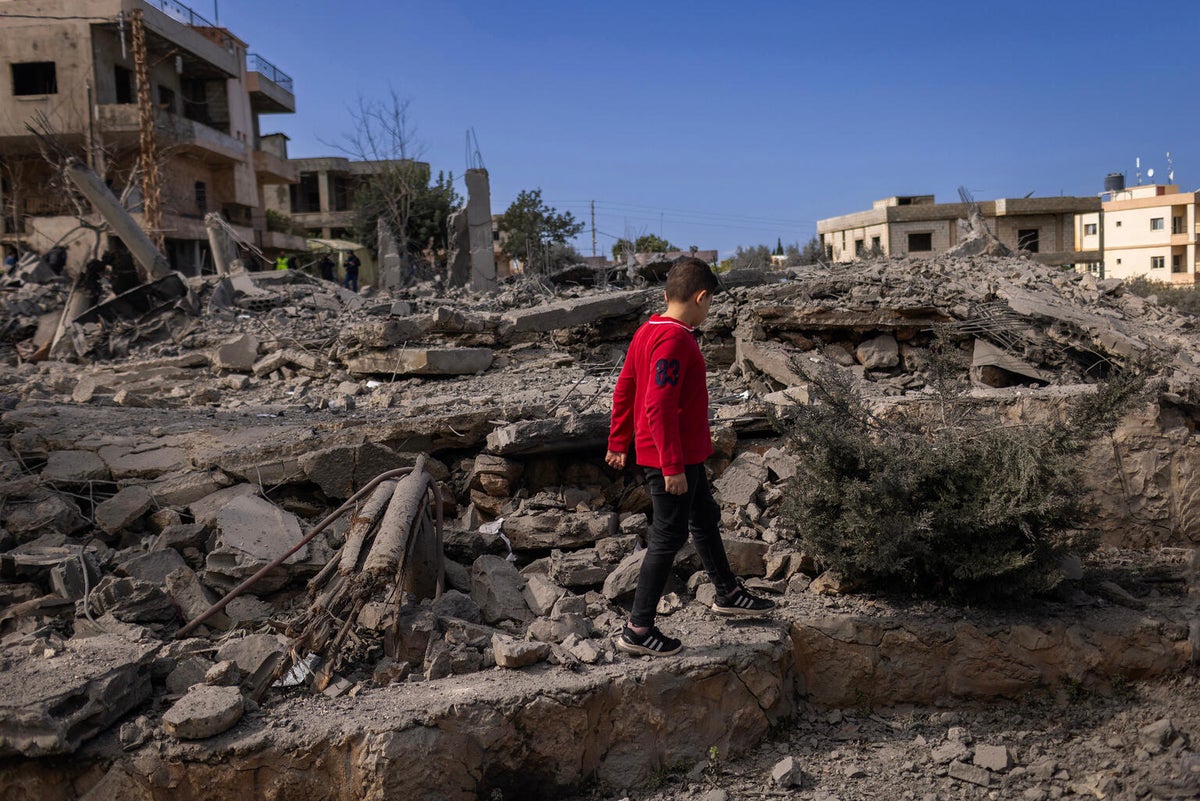
Silent emergencies explained
181 m
In 2024, food poverty affected 181 million children under five globally.
251 m
Globally, 251 million school-aged children were out of school in 2024.
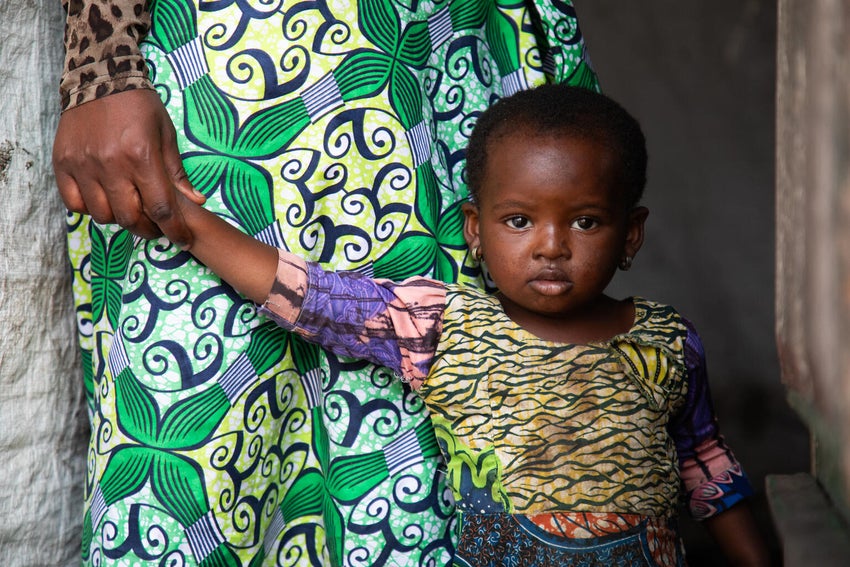
Democratic Republic of Congo
Millions of children in the DRC are enduring one of the most complex and forgotten crises in the world. After nearly a century of colonial exploitation and brutal rule, the DRC continues to endure civil wars, political instability, corruption, and a severe lack of infrastructure.
Children caught in this catastrophe need us more than ever.
Silent emergencies that are happening right now
How UNICEF is helping children in emergencies
Whether an emergency gets media attention or not, UNICEF is there. No matter where or what, we stay and deliver for children. We do this by providing safe drinking water, vaccinating children against life-threatening diseases, treating children for all forms of malnutrition, providing access to education, protecting children from harm, and helping communities to recover and build back stronger.
26 m
In 2024, 26 million out-of-school children gained access to education, including 9 million in humanitarian settings.
40.4 m
UNICEF provided child protection services to over 40.4 million people in humanitarian settings in 2024.
$1.2 b
In support of humanitarian action, UNICEF delivered $1.2 billion worth of emergency supplies to 68 countries and areas in 2024.
41 m
In 2024, over 41 million people gained access to water, sanitation and hygiene services in humanitarian settings.
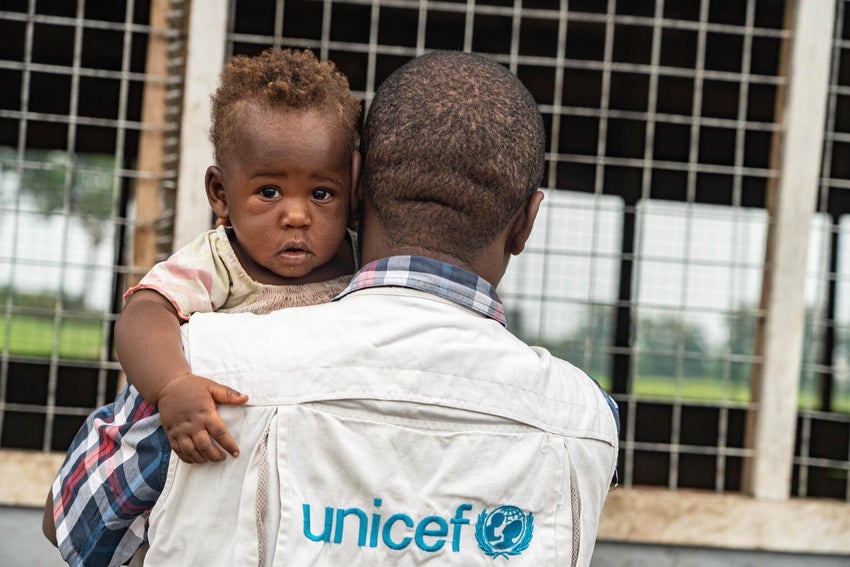
UNICEF’s humanitarian role during conflict
UNICEF is always there, working to uphold the rights of all children affected by conflict and humanitarian crises, no matter who they are, where they live or what they believe. We stay and deliver before, during and after an emergency.
As conflicts continue to unfold around the world, we answer some of the big questions about UNICEF’s humanitarian role during conflict and war and how we protect, advocate and deliver lifesaving support for children and families caught in these crises.
Partnering with local organisations for greater impact
In emergencies – including silent emergencies – UNICEF works with global experts and local partners to deliver impact for children and their families. By partnering with local civil society organisations, UNICEF ensures that the needs and priorities of affected communities are addressed and that they have a voice in the design and implementation of responses.
In their greatest times of need, UNICEF's presence is more than just lifesaving support. For many children, it's a sign of hope and that they have not been forgotten because every child has the right to survive and thrive, no matter who they are, where they live or what they believe.
The power of your gift
There is a strong link between media coverage of emergencies and funding for those emergencies. When we turn on our televisions and see children and families suffering in a crisis, we naturally want to support them. But when an emergency doesn’t make the news, we may not realise support is needed.
As a 100 per cent donor-funded organisation, UNICEF relies on the funding of generous donors to meet children in need. But in 2023, half of all donations to UNICEF were earmarked by donors for just seven emergencies, while other crises were left underfunded.
This is what makes flexible donations so important. Donations enable UNICEF to respond quickly and effectively for children wherever the need is greatest, no matter what.

Our work in emergencies
We’re on the ground working to reach children and their families with lifesaving support while helping communities to recover.
Discover more about UNICEF’s work in global emergencies.
Donate to where the need is greatest
When you donate to where the need is greatest, you're helping UNICEF be there for children who are in the greatest need, wherever that may be. UNICEF can respond quickly and effectively when an emergency strikes, offering immediate relief and long after, helping communities to build back stronger. Please help UNICEF be there for every child before, during and after an emergency, no matter what.





